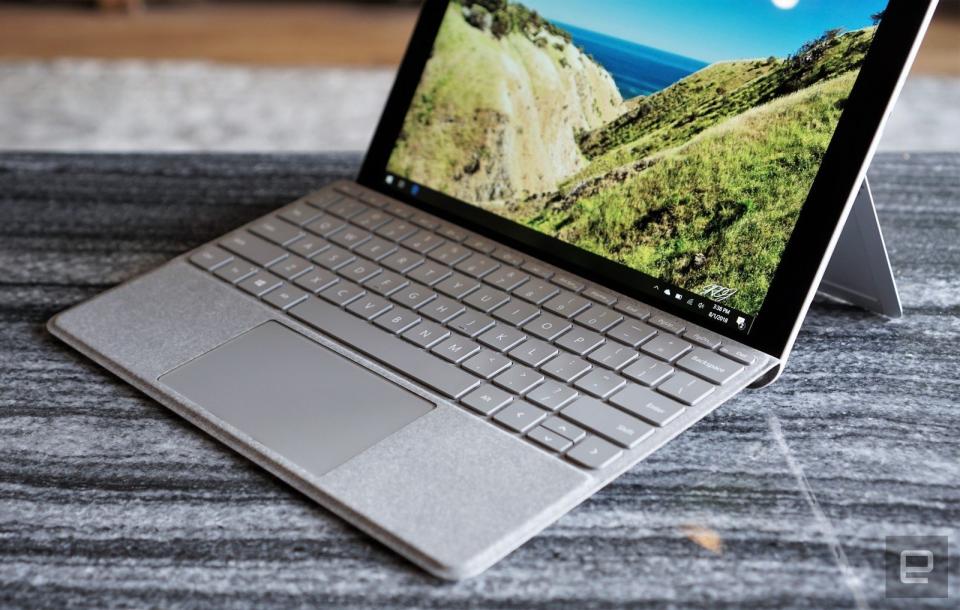Recommended Reading: The best of 2018
The best long-form writing on technology and more on the web.
Surface Go is Microsoft's big bet on a tiny-computer future
Lauren Goode,
Wired
We're taking a look back at the most popular Recommended Reading stories of the year this week. At the top of the list is Wired's detailed piece on the $399 Surface Go, Microsoft's long-rumored smaller Surface device. Other popular RR entries this year cover Alexa and Google Assistant, an interview with Tim Cook, election hacking and fake news.
The accent gap Smart speakers (and the virtual assistants they house) offer voice control for so many connected devices it's hard to keep count. Those audio gadgets can also assist with a range of questions -- that is, if they can understand you. The Washington Post took a close look at the performance of Alexa and Google Assistant when it comes to understanding people with strong accents. The results show that while these devices are certainly handy and increasingly popular, there's still a lot of room for improvement. | Why Apple is the world's most innovative company Apple may be one of the biggest companies in the world, but it still doesn't open up often about how it operates. A few times a year though, we catch a glimpse. Fast Company caught up with CEO Tim Cook back in January to chat Apple's recent run of new gear in an interview that published a few weeks later. |
The midterms are already hacked. You just don't know it yet. The concerns regarding voting processes in the US are nothing new, especially when it comes to vulnerabilities. Vox took an in-depth look at the troubling issues surrounding voting systems ahead of the midterms on November 6th. And it's (still) not pretty, even after months of warnings from all sides. | The fact-checkers who want to save the world In the era of fake news and rampant misinformation, fact-checkers are a key line of defense and an important tool in separating truth from lies. The Ringer took a look a the organizations and individuals who have accepted the challenge, shifting through stories and even fact-checking those claiming to be fact-checkers. |


